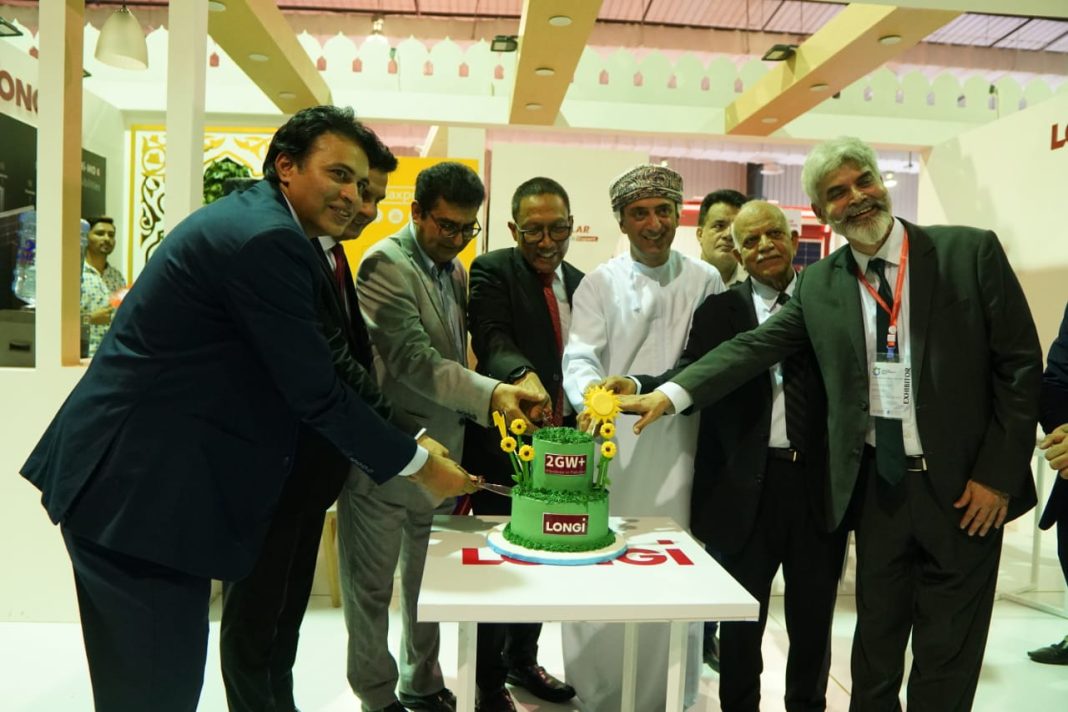KARACHI: “We have signed a series of MoUs with industry partners at the exhibition to jointly write the future chapter of renewable energy, not only for Pakistan, but also for the globe,” Ali Majid, General Manager, Pakistan, LONGi Solar, told the Gwadar Pro during the just concluded Solar Pakistan 2023 that held in Karachi this
Solar Pakistan, being the only dedicated platform to bring the latest solar innovations and showcasing the largest solar projects in the country, providing a unique platform in building partnerships with all government and private sectors. According to its official website, this year’s expo attracted a total of 72 industry-leading solar providers.
“As world’s leading solar energy brand, we have always been at the forefront of renewable energy.” According to Ali, the LONGi Pakistan team announced that they are about to achieve the magnificent goal of 2GW here, of which the Secretary of the Sindh Department of Energy attended the celebration ceremony. There is no gainsaying that for providers, the Pakistani market means an increasingly expanding market size.
Statistic from the International Renewable Energy Agency (IRENA) showed that the Pakistan solar energy market size is expected to grow from 1.3 GW in 2023 to 9.77 GW by 2028, at a CAGR of 49.68 percent during the forecast period (2023-2028). And nowadays, solar power installations have seen remarkable growth, with an installed capacity of over 2,368 MW as of FY22, reflecting the rising popularity and potential of solar energy.
In September 2022, the Pakistani government approved the National Solar Energy Initiative to produce 10,000 MW of electricity through solar energy projects. The initiative aims to reduce the import bill of costly diesel and furnace oil, thus creating demand in the country’s utility sector. Hence, the government will likely develop more utility-scale projects, increasing the renewable energy mix. And the government is in the process of designing a new auction plan to deploy 9 GW of solar power. The initiative will involve the installation of 6 GW of large-scale solar projects, 2 GW of medium-scale solar projects, and 1 GW of rooftop solar capacity.
Despite its vast potential for solar energy, with an average solar global insolation of 5-7 KWh/m2/day, Pakistan has only scratched the surface of its capabilities, thus the Alternative Energy Development Board (AEDB) offers net metering and feed-in tariffs to encourage residential and commercial solar installations, beyond the large-scale ground photovoltaic projects. In this expo, the reporter learned that LONGi showed Hi-MO 6 series products for industrial and commercial roofs and Hi-MO 7, which can capture sunlight from both front and back sides, maximizing the energy output of ground PV projects.
In a remarkable turning point, International Energy Agency (IEA) recently reported solar energy is set to attract more capital investment than traditional oil for the first time ever. In 2023, an average of approximately USD 1 billion per day (USD 380 billion for the year) are being invested in the solar industry, exceeding investment in oil production for the first time (USD370 billion for the year). “Under such a background, Pakistan stands at a crucial juncture,” Ali underlined, “through constantly renovate clean energy technology, not only solar, we can secure a sustainable and clean energy future while reaping the economic benefits that come with the global shift towards renewable energy sources. Obviously, the China-Pakistan Economic Corridor (CPEC) has also played a crucial role in fostering solar energy cooperation between the two countries, we are going to play a leading role in the industry, making CPEC a greener corridor.” –INP






